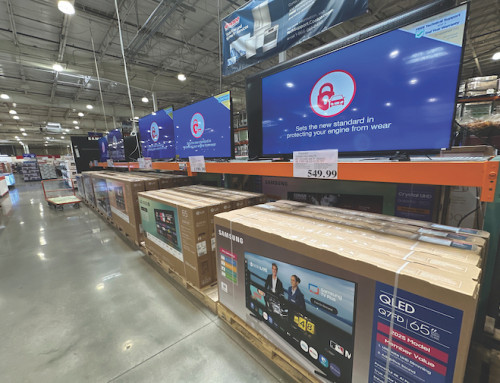WASHINGTON (AP) — Democrats say they are planning to force two Senate votes on President Donald Trump’s tariffs in the coming weeks, keeping pressure on Senate Republicans as many of them have voiced frustration with the policies.
Virginia Sen. Tim Kaine says he will soon introduce two separate bipartisan resolutions that would terminate the national emergencies that Trump declared to justify the tariffs he has imposed on Canada and Brazil.
In April, four Republicans voted with Democrats to block Trump’s tariffs on Canada, but the House never took it up.
Kaine said it’s common for Republican senators to express concerns about the tariffs, but he wants to put them on the record as often as he can.
Republicans can “vote with your constituents or vote with President Trump,” Kaine said. “Over time, the instability is creating huge concerns.”
Kaine is introducing the two resolutions with a group of Democrats and Republican Sen. Rand Paul of Kentucky, a critic of Trump’s tariffs. By introducing the measures, the group is triggering a decades-old law that allows Congress to block a president’s emergency powers and force votes on Trump’s declarations, whether majority Republicans want to hold the votes or not.
The law allows lawmakers to reintroduce the legislation and force new votes every six months — something Kaine says he will do until the policy is changed.
Hours after Kaine’s announcement, the House voted to temporarily block any such effort.
Republican House leaders who have defended the tariffs added language to an unrelated measure that would prevent votes on the tariffs until next year, ensuring that the Senate resolutions will only be symbolic even if they pass.
The Senate votes will come at a time of turmoil for the economy. The nonpartisan Congressional Budget Office said last week that Trump’s tariff policy is one of several factors that are expected to increase jobless rates and inflation and lower overall growth this year.
Republicans from agricultural states and beyond, including Senate Majority Leader John Thune of South Dakota, have expressed wariness about some of the sweeping tariffs and concerns about the effects on businesses that depend on Canadian trade.
Still, Republicans have mostly deferred to Trump on his administration’s trade policy, arguing that the president needs time to work on deals with individual countries.
“I think everybody kind of knows my views on tariffs, but the fact of the matter is, the president ran on this,” Thune said earlier this year.
The resolution to block the Canadian tariffs would end the emergency declaration that Trump signed in February to implement tariffs on Canada as punishment for not doing enough to halt the flow of illegal drugs into the United States.
The Senate passed the same resolution in April with support from Paul and three other Republicans — Sens. Lisa Murkowski of Alaska, Susan Collins of Maine and Mitch McConnell of Kentucky. Trump called out the four on social media at the time, encouraging them to “get on the Republican bandwagon.”
The second resolution would block Trump’s 50 percent tariffs on Brazil, ending an emergency that Trump linked to Brazil’s policies and criminal prosecution of former President Jair Bolsonaro.
In addition to oil, Brazil sells orange juice, coffee, iron and steel to the U.S., among other products.









